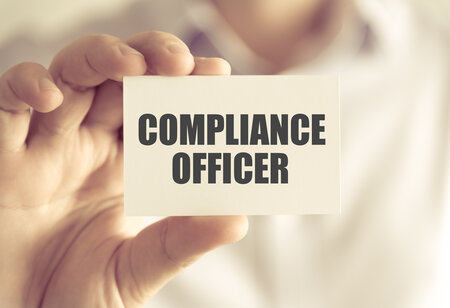Why Should an Organization Hire a Chief Compliance Officer?
By Tanuja A Akkannavar
 The person in charge of monitoring and enforcing enforcement within an organization is known as the Chief Compliance Officer (CCO), they usually report to the Chief Executive Officer and collaborate with external regulatory bodies to keep an organization compliant. The CCO is responsible for determining requirements and enforcing guidelines to promote that enforcement programs across the company are productive and useful in recognizing, mitigating, identifying, and addressing failure to comply with relevant laws and regulations.
The person in charge of monitoring and enforcing enforcement within an organization is known as the Chief Compliance Officer (CCO), they usually report to the Chief Executive Officer and collaborate with external regulatory bodies to keep an organization compliant. The CCO is responsible for determining requirements and enforcing guidelines to promote that enforcement programs across the company are productive and useful in recognizing, mitigating, identifying, and addressing failure to comply with relevant laws and regulations.
Top Reasons to Hire a Chief Compliance Officer –
1. Company Policy –
The CCO is in charge of developing company policies and educating staff on them in order to ensure compliance. They are in charge of tracking and evaluating the success of the company's enforcement programs.
2. Integrative Leadership –
Several enforcement units receive integrative leadership and strategic direction by a Chief Compliance Officer and they oversee strategic budgeting within units, supervises unit directors, and coordinates short- and long-term priorities of participating units.
3. Provides Strategic Guidance –
A CCO assigns responsibility with strategic guidance on evolving legislative standards in the fields of civil equity, affirmative action, equality, reporting responsibilities under conflict resolution, organizational monitoring and reporting, and other areas as they arise.
4. Identifies Potential Vulnerabilities –
The CCO is diligent in finding potential vulnerabilities and can solve them right away with remedial actions. They also devise effective plans for staff and the corporation to prevent recurrence of similar circumstances in the future.
5. Greater Industry Knowledge –
Chief Compliance officers will have a natural and logical understanding of the organizational vision and values, and also about the larger market and standard industry rules. They are responsible for not only maintaining a company's financial dealings legal and ethical, but also for training the whole organization and implementing policies that ensure the maximum level of compliance possible.
How Compliance Officer Works?
A compliance officer is a top executive who assists the business in maintaining laws and procedures in order to stay within the regulatory system of the sector. A compliance officer's responsibilities could include evaluating and establishing guidelines for external communications, such as enforcing disclaimers in emails or inspecting systems to ensure they are open and secure. Company policies may be designed or updated by compliance officers to reduce the risk of the organization violating laws and regulations, and internal audits of procedures may be led by compliance officers.
A compliance officer must have a clear understanding of the corporation and be mindful of any potential regulatory violations. The compliance officer's ability to efficiently convey the company's core ethical values and compliance regulations is critical. Daily training sessions for staff are organized by compliance officers to address important regulatory modifications. This is especially true in today's high-stakes regulatory setting, where transition is constant. The compliance officer must collaborate with core businesses and administration to develop effective emergency plans that outline how to respond in the event of a potential compliance violation.
Compliance officers are required to have an unbiased perspective on company policies. Other workers' pressure to ignore infractions, including managers and executives, can result in substantial penalties or sanctions, which can lead to expensive or even company closure. A chief compliance officer (CCO) is usually appointed by larger corporations to oversee compliance-related activities.




